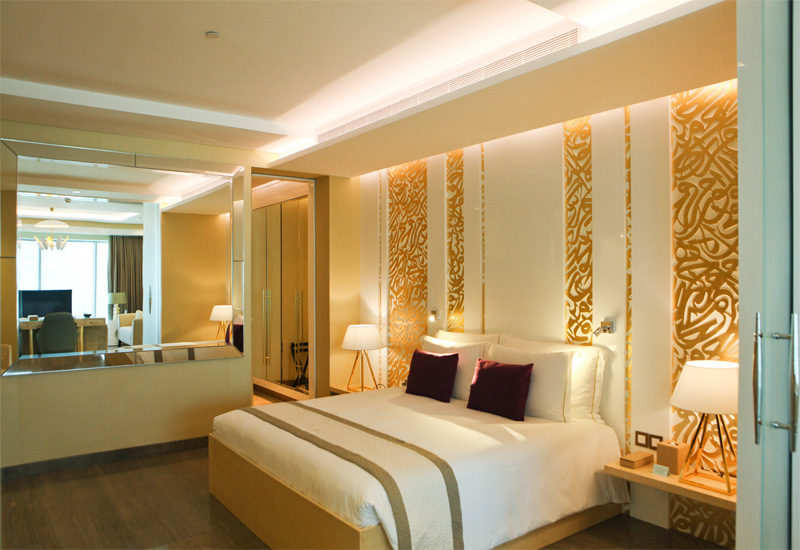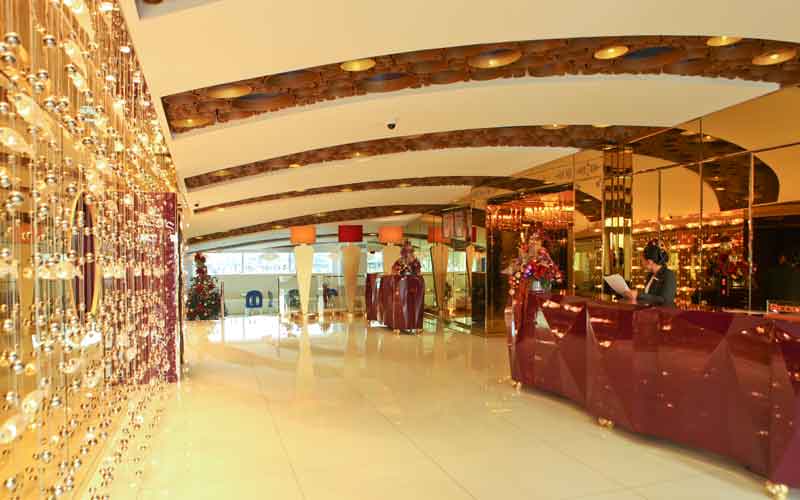Social Spaces
A key element of The Domain’s concept is the hotel’s food and beverage offering. Restaurants and lounges at the hotel are called social spaces to tie in with the hotel’s concept.
Restaurants at the hotel include a Basque tapas bar called Txoko, which offers panoramic views over the city; a Japanese lounge called Imari, which specialises in the Izakaya concept of sharing platters along with a selection of robotayaki; and all-day dining restaurant, Figs & Olives, which offers an a la carte menu of Lebanese and Mediterranean cuisine.
Also part of the F&B offering is a French duo of restaurants called Le Sauvage and Le Domain — while Le Sauvage (which means ‘the wild’ in French) focuses on meats and steak; Le Domain is meant to reflect a more ‘feminine’ theme with lighter cuisine and a heavy focus on seafood.

| Advertisement |
The team, led by executive assistant manager F&B Kim Andersen, has been working on introducing the concepts to the Bahraini market. The main challenge for Andersen, whose previous experience in the Middle East is exclusive to Dubai, is competing with independent restaurants in the city, especially those that are licensed.
“Five kilometres from here you have 30 or 40 restaurants confined in one area ... and it has everything from Indian to Chinese, to The Meat Company. So I guess one of the challenges here is to turn this into a destination where people can come and have French food, Japanese food, Spanish food, Lebanese cuisine; there are so many different flavours here.
So we are really focusing on superb quality and ensuring that the product served and the service given is good and when people come here, they realise that they didn’t pay five-star prices and know that what they would spend here is similar money to an independent restaurant and then come back here,” says Andersen.
Chef de cuisine Bengt Carlsson, who has previously worked with Andersen, believes the hotel’s liquor licence is not the draw and asserts that the restaurants create their own niche by focusing on a particular element of the cuisine offered.
“We don’t use liquor to market ourselves. We probably wouldn’t even if only hotels were licensed like in Dubai. It’s tougher, definitely, but we still believe we have that quality, and also we create a niche. For instance, we are not just a French restaurant, we are southern French; we are not a Japanese restaurant, we are izakaya; or we are not just a Spanish restaurant, we serve Basque tapas.
So we try a little bit harder to be niche. For me it’s always about the quality of the food; that’s what we use as the argument,” he declares.
Most restaurants also adopt a sharing concept, which Andersen believes differentiates them from other restaurants.
“The food is very much cutting edge in terms of food presentation and the sizes of the dishes. You get the opportunity to try a lot of different things.
I think business people today don’t eat and drink too much like they used to — they like smaller things, smaller portions, to try out different things. And the sharing concept in various restaurants really gives you the opportunity to try out many things,” he explains.
The sharing concept the restaurants promote also happens to be in sync with the hotel’s social engagement theme, offering more chances to socialise.
“We’ve worked very hard on creating reasons and a multitude of venues within this building where people can socialise. I think actively providing the opportunity, venue, entertainment, and food and beverage to promote that kind of real time social engagement... that is the real premise of The Domain,” says De Groot.










 Search our database of more than 2,700 industry companies
Search our database of more than 2,700 industry companies









